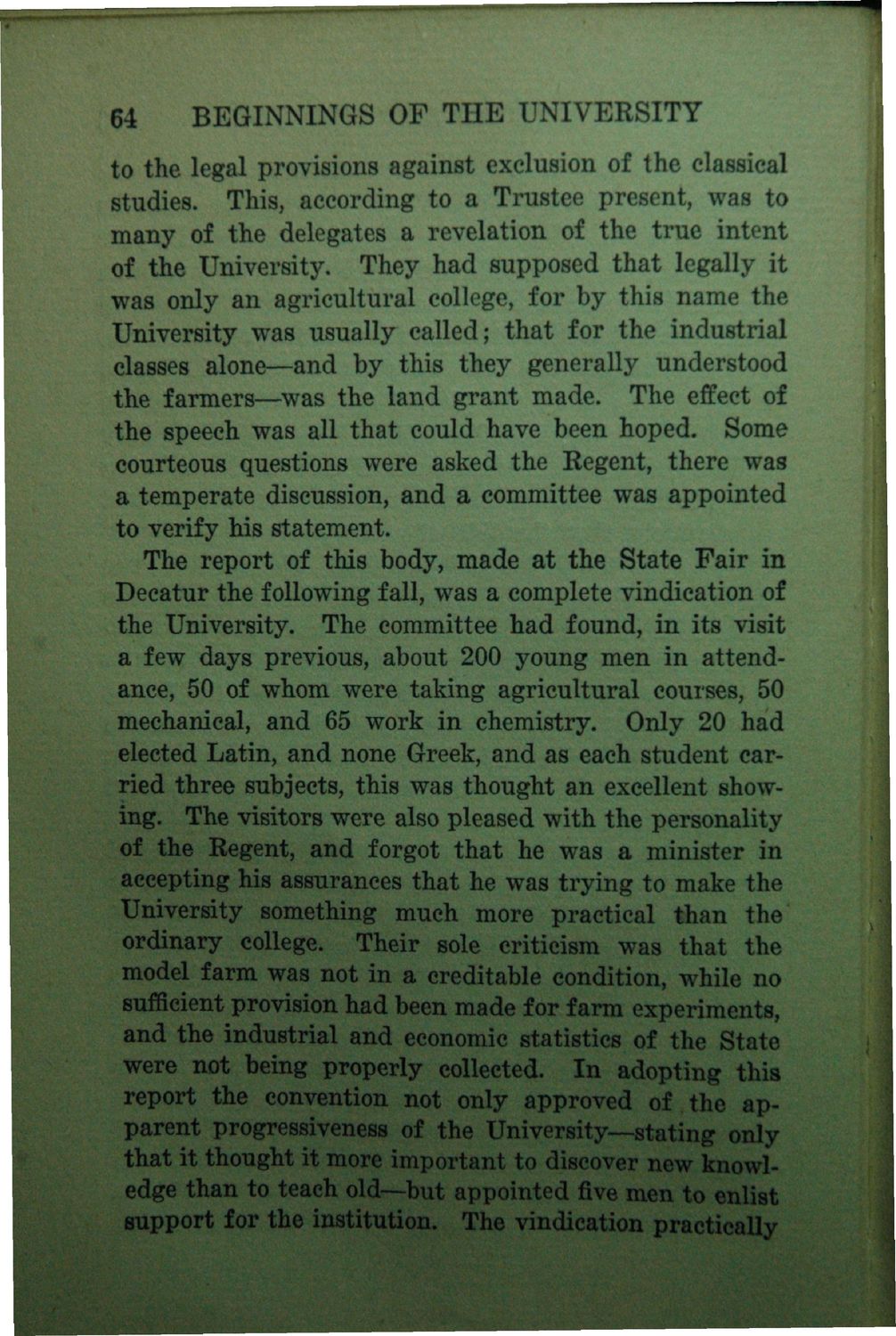| |
| |
Caption: Book - History of the University (Nevins)
This is a reduced-resolution page image for fast online browsing.

EXTRACTED TEXT FROM PAGE:
64 BEGINNINGS OF THE UNIVERSITY to the legal provisions against exclusion of the classical studies. This, according to a Trustee present, was to many of the delegates a revelation of the true intent of the University. They had supposed that legally it was only an agricultural college, for by this name the University was usually called; that for the industrial classes alone—and by this they generally understood the farmers—was the land grant made. The effect of the speech was all that could have been hoped. Some courteous questions were asked the Regent, there was a temperate discussion, and a committee was appointed to verify his statement. The report of this body, made at the State Pair in Decatur the following fall, was a complete vindication of the University. The committee had found, in its visit a few days previous, about 200 young men in attendance, 50 of whom were taking agricultural courses, 50 mechanical, and 65 work in chemistry. Only 20 had elected Latin, and none Greek, and as each student carried three subjects, this was thought an excellent showing. The visitors were also pleased with the personality of the Regent, and forgot that he was a minister in accepting his assurances that he was trying to make the University something much more practical than the ordinary college. Their sole criticism was thatfjthe model farm was not in a creditable condition, while no sufficient provision had been made for farm experiments, and the industrial and economic statistics of | K State were not being properly collected. In adopting this report the convention not only approved of the apparent progressiveness of the University—stating only that it thought it more important to discover new knowledge than to teach old—but appointed five men to enlist support for the institution. The vindication practically
| |